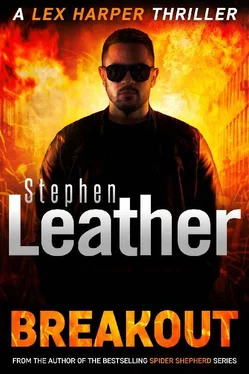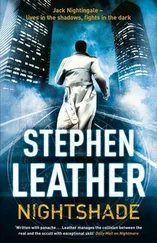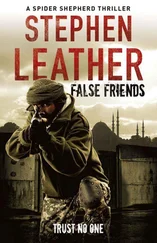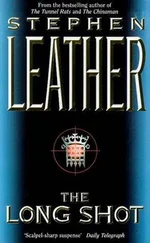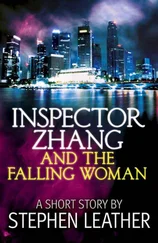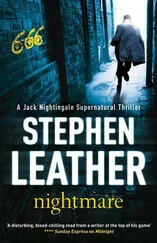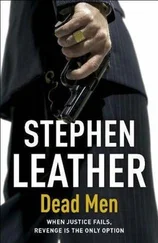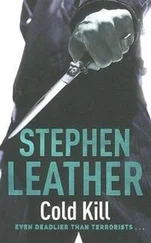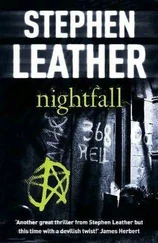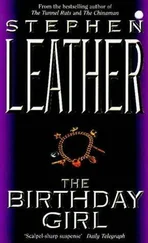‘Deal,’ Harper said, peeling off eight $50 bills from the bundle he was carrying.
They waited while Randy finished fuelling the C-47 he’d chosen from the row of three in front of the hangar. Its fuselage had scores of dents in it and the perspex canopy was hazed with a myriad of tiny scratches, but when Randy fired it up, there was nothing wrong with the engine’s throaty roar. ‘All right,’ he said, raising his voice to be heard above the engine noise. ‘All aboard who’s going aboard.’
Lupa and Harper climbed in but Ricardo hung back for a moment. ‘Are you sure this is safe?’ he said.
Randy gave him a world-weary smile. ‘Friend, I may not look it, but I’m mighty attached to this life of mine. I’m not going up there in any aircraft that isn’t going to get me home to my Conchita tonight. And we need to get going now because once we’ve ditched the car, it’s a three hour flight and I’ve got to be back here before dark, so let’s do it, shall we?’
Ricardo still looked dubious. ‘There are some very big mountains between here and La Paz,’ he said.
Randy smiled again. ‘Really? You don’t say, son? I’ve been flying aircraft out of here for twenty years and I never knew that. But seriously, my Daddy was a pilot in the USAF and way back in 1944 he was flying C-47s right over “The Hump” as they called it then - the Himalayas in other words - and tall as the Andes are, the Himalayas are higher still, so getting over the Andes is never going to be a problem for a C-47. There are still thousands of them in use all over the world and you can’t get a more solid and reliable aircraft, but just to be sure, I maintain this baby myself. Now we’ve no time to argue about this any longer, so what’s it to be - fly or walk?’
Ricardo hesitated a moment longer and then climbed aboard with a face like a man on his way to the gallows. Randy turned to wink at Harper. ‘Hope your friend here is better on the ground than he is in the air.’
Without waiting for a reply, he opened the throttles and they bumped their way down off the mound and began rumbling along the airstrip. They took off, and began banking around to fly further over the dense canopy of the rainforest beneath them.
As they flew above the Andes, the warm, steamy air rising up the face of the mountains caused some turbulence that made Ricardo cross himself again and close his eyes, while the stomach-churning lurch as they hit an air pocket and dropped fifty feet, turned him an even whiter shade of pale.
Beyond the mountains, they flew on over the endless barren plain of the Altiplano , before Randy began the approach to landing, eventually setting them down at a dirt airstrip on the edge of a small town, a handful of miles east of La Paz. There were a few decrepit-looking buildings - more barns than hangars - to one side of the runway and one man in an oil-stained boiler suit, who got out of a crumbling armchair, stationed next to the fuel pump, and stood waiting for Randy to taxi over to him to refuel. There were no other aircraft or people visible.
‘Just how I like it,’ Harper said. ‘Nice and quiet.’
‘And it’s no more than a mile into town from here,’ Randy said. ‘You can pick up a flota - a bus - in the market square that will take you right into La Paz.’ He handed Harper a battered business card. ‘Just in case you ever need another flight any time. The phone service in Bolivia is a joke outside the cities but if you dial that number, Conchita will get a message to me and I’ll usually be back to you within a couple of hours. Okay, adios, and you take care now, y’hear?’ He raised a hand in farewell, then gunned the engine and taxied over to the man at the fuel pump.
By the time Harper, Lupa and Ricardo had walked up the track away from the airstrip, Randy was on his take-off run, bouncing and jolting down the airstrip and then climbing steeply back towards the mountains.
Harper, Lupa and Ricardo walked into the nearby town, their feet scuffing up clouds of reddish-brown dust that clung to their skin and clothes. Harper still hadn’t fully adjusted to the altitude and even at the steady pace they were walking, he didn’t have much breath to spare for conversation and they walked in silence most of the way. Just as Randy had predicted, a flota - the gaudily decorated minibus/taxis that, under a variety of different local names, were the cheapest and most widely used form of transport throughout South America - was parked in the town square. It was half full, the driver dozing at the wheel. As was the custom, he had painted his bus in vivid colours, and decorated it with hundreds of mirrors, religious medals, emblems of his favourite football teams, feathers, bits of cheap costume jewellery, motifs and photographs. He opened an eye wide enough to sell them tickets to La Paz, then went back to his slumbers.
‘Let me guess,’ Harper said, as they settled themselves on the back seat. ‘When does the bus leave? When the driver feels like it.’
Eventually, without any obvious reason for it, the driver stirred himself, started the engine and the bus began its slow, meandering journey into La Paz. At intervals people materialised out of the apparently empty plain and boarded the bus, while others, most of them carrying goods from the town market, got off and disappeared.
They reached La Paz at sunset, where the flota ground to an apparently final halt by the Cementerio General , a sprawling necropolis filled with thousands of graves and crypts, extending for a square mile through La Paz’s outer suburbs.
‘Know where we are?’ Harper said, looking around for a recognisable landmark.
‘Not really,’ Lupa said. ‘I’ve never been in this part of the city before, but do you know what they say about La Paz? You can never be lost here, because if you’re in doubt, you just start walking downhill and you’ll come to the centre.’
‘Then let’s try that,’ Harper said, setting off down the sloping street. They found a small hotel in a quiet square and Harper booked them three rooms before they headed to a nearby café.
Lupa chose for all three of them: sopa di mani : a spicy peanut, vegetable and pasta soup; salteñas de carne: empanadas stuffed with chicken and peas, that looked to Harper like Cornish pasties; and anticucho: which turned out to be skewers of barbecued ox heart, but tasted much more delicious than it sounded. They drank bottles of beer and then had a glass of San Pedro Singani - a fiery, grappa-like spirit made from grape skins - as a nightcap. ‘You should try a Chuflay as well,’ Lupa said. ‘It’s our signature cocktail: Singani, dry ginger and a twist of lemon.’
‘Maybe tomorrow night,’ Harper said. ‘I’m going to turn in now and I’d advise you to do the same, because first thing tomorrow, we have to start looking for Scouse.’
‘So where do we begin?’ Lupa asked.
‘We’ll start with the customs guy that Risk Reduction were paying off.’
‘And how do we find him?’
‘Well, we’ve got his name - Alvaro Lopez - and his photograph.’ He pulled the mugshot Standish had given him out of his pocket and passed it to her. ‘And we know where he works, don’t we? So it shouldn’t be too hard to track him down.’
CHAPTER 7
Alvaro Lopez had just finished his shift at the airport that afternoon and was walking away from the terminal on his way home, when two men, a Bolivian and a fair-skinned Westerner, appeared at either side of him. A beautiful young Bolivian woman then stepped out in front of him, barring his way.
‘ Qué esta pasando ?’ he said. ‘What’s going on?’
‘ No es nada - It’s nothing’ Lupa said. ‘We just want a word with you.’
Читать дальше
